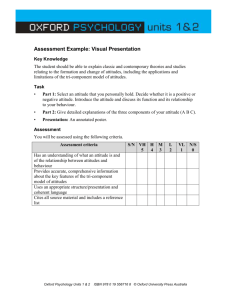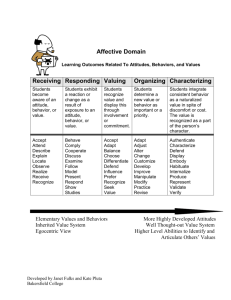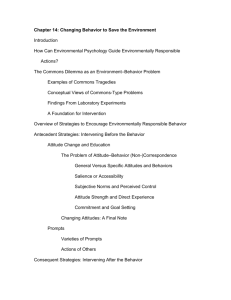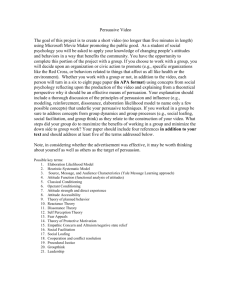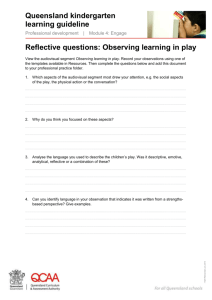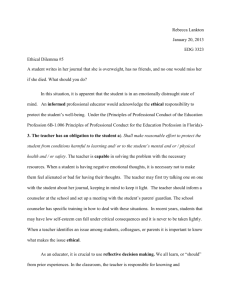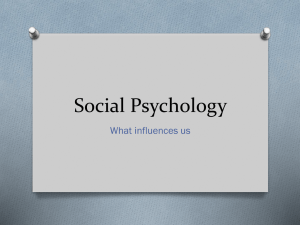скачати
advertisement
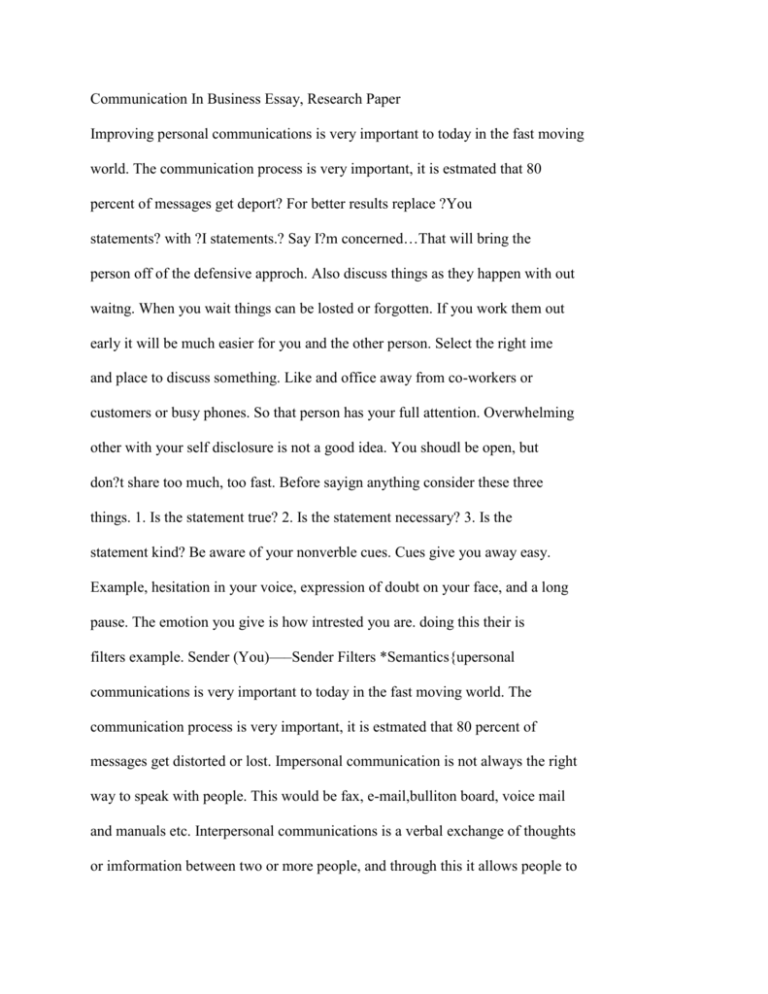
Communication In Business Essay, Research Paper
Improving personal communications is very important to today in the fast moving
world. The communication process is very important, it is estmated that 80
percent of messages get deport? For better results replace ?You
statements? with ?I statements.? Say I?m concerned…That will bring the
person off of the defensive approch. Also discuss things as they happen with out
waitng. When you wait things can be losted or forgotten. If you work them out
early it will be much easier for you and the other person. Select the right ime
and place to discuss something. Like and office away from co-workers or
customers or busy phones. So that person has your full attention. Overwhelming
other with your self disclosure is not a good idea. You shoudl be open, but
don?t share too much, too fast. Before sayign anything consider these three
things. 1. Is the statement true? 2. Is the statement necessary? 3. Is the
statement kind? Be aware of your nonverble cues. Cues give you away easy.
Example, hesitation in your voice, expression of doubt on your face, and a long
pause. The emotion you give is how intrested you are. doing this their is
filters example. Sender (You)—–Sender Filters *Semantics{upersonal
communications is very important to today in the fast moving world. The
communication process is very important, it is estmated that 80 percent of
messages get distorted or lost. Impersonal communication is not always the right
way to speak with people. This would be fax, e-mail,bulliton board, voice mail
and manuals etc. Interpersonal communications is a verbal exchange of thoughts
or imformation between two or more people, and through this it allows people to
give feedback on what they have to say or ideas they would like to share. In
Communications theirs always (You) Message Sender. Next, Message (Directions)
Next, (Friend) Message Receiver. By doing this their is filters example. Sender
(You)—–Sender Filters *Semantics, *Emotion, *Attitudes, *Role Expectations,
*Gender Bias.—-Message—-Receiver Filtes, *Semantics, *Emotion, *Attitudes,
*Role Expectations, *Gender Bias.—Receiver (Plumber) Semantic is a word that
will ahve different meanings to different people. Example WordProcessing to some
people that might mean type writer. To me it means Computer typing. Emotions
play a big part on what kinda feed back you get when talk to someone. If a CEO,
comes into a busniess meeting and starts yelling and gives everyone a real big
attitude. The people who have to come up with ideas aren?t going to say much.
If they have an idea they will probably won?t say it at all. That also falls
into Attitudes. When working in a company you have to find a role. What I mean
by a role is you have to find a common ground of what you have to get done and
do it. There will be some gender bias in every company or work place, you just
need to find something you like and stick to it. Nonverbal Messages play a huge
part. Example if you are the boss and someone is trying to give you an idea they
came up with and you are not giving them eye contact, a dirty facial expression,
and uncomfotable gestures. The person will feel that you could careless. When in
a work enviroment everyone needs some kind of personal space. When provided
personal space people work better and easier and more relaxed. When talking to
someone send clear messages try to keep out all the filters. So people won?t
be misunderstood. Use words carefully, example use words that are simple, clear
and cannot be mistaken. Use repetion when possible send the people an e-mail or
leave a message, that will get there attention. Develop listening skill,
everytime you talk with someone you?re working on listening skills. Apply that
to the next person. Active listening you?re seeing and listening to what they
have to say. Empathic listening is good to a company becuase it gives a employee
someone to talk to too about personal problems. Here?s some steps 1. Avoid
being judgmental. 2. accept what is said. 3. Be patient. This will help a
company in a big way. You want to create a climate that encourages upward
communication. Have the people below at the bottom give ideas and partisapate in
some meets. High Tech communication is a big part on keeping in touch with
employees ?virual offices?, ?Telecommuting?, and ?E-mail.? There are
four diffenerent communication styles, the 1st one is, Emotive Style, 2nd one is
Director Style, 3rd one is Reflective Style, and the 4th one is Supportive
Style. The upper-right-hand quadrant combines high sociavillity and high
dominance. This is characteristic of emotive style of communication (Figure out
of the book 3.6) An example of the emotive type of person is comedian Jay Leno.
Roise O?Donnell also projects an outspoken, enthusiastic abd stimualtiang
style. Sandra Bullock, shows emotive style by displaying laughter at herself in
an imformal atmosphere. Here?s three verbal and nonverbal clues that identifly
the emotive person: 1. Displays action- oriented behavior. 2. Likes informality.
3. Possesses a natural peruasiveness. Director style. The lower right hand
quadrant represents a commuication style that combines high dominance and low
sociabillity. Example, Television interviewer Barbara Walters and house speaker
Newt Gingrich project the director style. They have been described as frank,
assertive, and very determined. Some behavior displayed by director include the
following. 1. Projects a serious attitude. 2. Express strong opinions. 3. May
project indifference. Reflective Style. The lower left hand quadrant of
communication style model features a combination of low dominace and low
sociabillity. The reflective person is usually quiet, enjoys spending time
alone, and does not make decisions quickly. Albert Einstein, Alan Greenspan,
Jimmy Carter, all of these people are in reflective styles. Here?s some
behaviors of Reflective style. 1. Express opinioned in a formal, deliberate
manner. 2. Seems to be preoccupied. 3. Prefers orderliness. Supportive style.
The upper left hand quadrant combines low dominance and high sociabillity.
People who fit into to this style tend to be coopetrative, patient, and
attentive. This behavior style includes. 1. Listening attentively. 2. Avoids the
use of power. 3. Makes and express decisions in a thoughtful, deliberate manner.
I?m more Reflective Style more than anything. Ethical Choices, always includes
these six things. Trustworthiness; Be honest and sincere. Don?t deceive or
mislead and never betray a trust. Respect; Be courteous and polite by being
appreciative and accepting of differences. Responsibility; Be accountable for
your actions. Don?t make excuses or take credit for other work. Fairness;
Treat all people fairly, be openminded and listen to opposing ponits of view.
Caring; Show you care about other through kindness, caring, sharing.
Citizenship; Play by the rules and obey the laws. How personal values are
formed. Five part valuing. 1. Thinking, learn to think for yourself. 2.
Feelings, go with your gut feeling. If you think it?s wrong it probably is. 3.
Communicating, values and choices are much easier when directed in an easy way
to understand. 4. Choosing, your values must be freely selected with no outside
pressure. 5. Acting, think about what your going to do before you do it. If you
follow these five steps you?ll be on your way to good ethics. There are my
influences on us, including Religious Groups, Schools, Media, Family, the people
we admire. These enviromental influnces can only be the rightway if you beleive
its the right way. If you keep an openmind that the only one who can give you
ehical choices is you. You might be better off. With changing times ethical
choices change with the social norm. But again it might not always be the right
way to view things. You ahve to find ethical choices in yourself. Through all
this in the job place you might have to work with someone you disagree with
there ethical choice or value. You have to find a common ground between you too.
Talk about something you both like or believe in. Try not to bring up values, or
opinions. To have ethical employees the company has to have ethical values also.
If the company is cheating people what kind of values does that show the
employees? None. Why can?t they steal if the company does? Whatever the
company does affects the employees in all parts, and levels. When a company is
running with values and showing that to the employees at all levels the company
will run smoother and a lot more production. ?Nothing is more powerful for
emloyees than to see their mangers behave according to their expressed values
and standards? Dan Rice and Craig Dreilinger. Attitudes affect you everywhere
you go and who you meet. Especialy at a work place. There?s a chain that comes
along with attitude. Values–Attiudes–Behaviors. Attitudes are usually form
from childhood experence with maybe yelling in a house hold or Mother doing
everthing and Dad doing nothing. It affects you as you get older. People in your
life around you as a child will shape your attitude for when you get older.
Rewards and punishment play a huge role in what your attitude maybe. Example if
you as a child was told to clean your room and you did and you got rewared. But
now all the time you clean your room you expect to be rewarded. Different
caltures have different attiutes. Example Asain students study harder than
American students because there we brought up to study hard, no job until they
have reached end of school. As for American students layed back, and have jobs,
but has to handle both. Attuitudes don?t always have to be with an outside
issue this can be brought up in the work place. Example, your manger comes into
work late and leave early, or calls in to go to a golf match. This kinda
attitude by the manger sahpes the attitude for the employees. Being a team
player is more valueable to a company than being someone who knows more. Being a
team player concist of not always ask yourself what?s in it for me, or always
complaining to do soemthing when asked to cover for someone. Another thing that
brings good attitude is usually good health. If you eat healthly you usually
have more energy to give more, and you feel good about yourself. Many companies
are realizing employees attitudes are affecting how things are run and
production levels. If a company has everyone from the bottom up include ideas,
and hear ideas. The emlopyees feel needed to get a job done. When companies are
orginized the employees feel they are needed a company will run better than
ever. Building trust, and selfdisclosure. Selfdisclosure is a process of letting
people know what you think, feel or want. Building trust starts by showing
someone something you said you would do, not by just saying. It?s one of the
most impotant ways you let yourself be known. Selfdescription is nonthreating
information like your age, favorite food, where you were born, etc. There are
benifits gained by Selfdisclosure. Increased accuracy in communication,
Reduction of stress, Increased selfawareness, and Stronger realtionship. Johari
Window. Is a model that shows there is some information you know about yourself
and other information you are not aware of. There is some information about you,
that you are not aware of that others are. This model shows that in different
windows. It?s a box with four quadrants in it. Top left 1 Open, Top right 2
Blind, Bottom left 3 Hidden, and bottom right 4 unknown. The top of the intire
box is information known to other, and the bottom half is information not known
to others. From the top left to the right is information known to yourself. The
right information not known to yourself. The open area is your public self, or
awareness area. This is information you don?t mind admitting to yourself. The
Blind is an area that others are aware of that you aren?t. Getting feedback
about this area can be helpful. The hidden is an area that contains information
about you that you know, but other do not. The unknown is an area made up of
things unkown to you and to others. Example unrecongnized talent, unconscious
motives, or early childhood memories that influence your behavior. This window
never completely disapears. As you grown older the window cahnges but not that
much. Contructive criticism is good because it shows you what you can?t see.
But there are certain ways to use it. Always avoid using ?You.? example,
?You didn?t complete the task"
http://ua-referat.com
